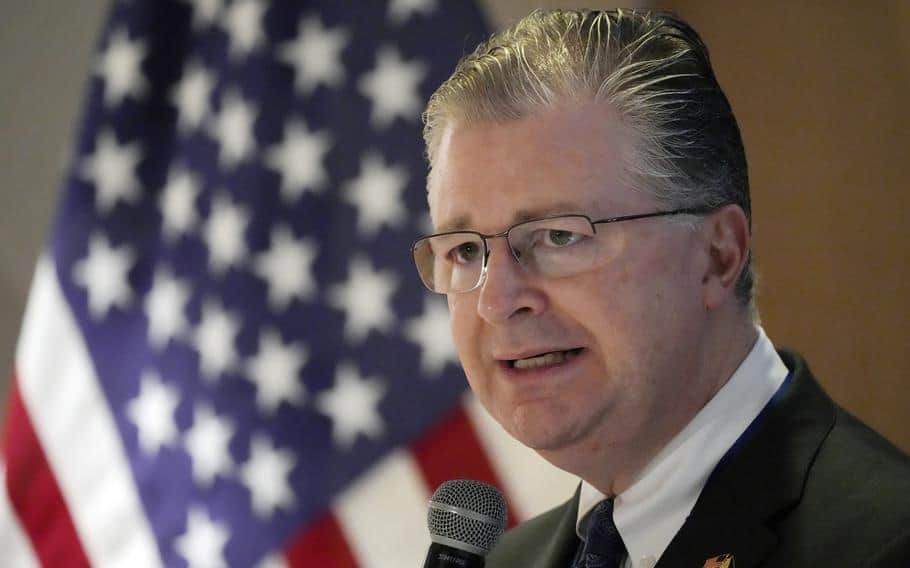Washington’s alliance with the Indo-Pacific region is sealed in place and won’t change no matter who gets elected president in November, according to a State Department official.
“I’ve never seen a stronger demand signal for American engagement across the region,” said Daniel Kritenbrink, Assistant secretary for East Asian and Pacific Affairs.
“We’re confident we’ve met that moment and we’ll continue to do so going forward.”
In the past four years under the Biden administration, the U.S has increased its engagement with Asian allies and Pacific island nations amid its competition with China for influence in the region.
Biden hosted leaders of the Pacific Islands Forum at the White House for the U.S-Pacific Summit in 2022 and 2023.
“We’re incredibly proud of what we’ve achieved in this administration in terms of our demonstrated commitment to the region – particularly to our allies, partners, and friends – to the region’s institutional architecture, and really the unprecedented upgrade of our investments in the region and our relationships with partners across Northeast Asia, Southeast Asia and the Pacific Islands as well,” he said.
Kritenbrink noted a “strong bipartisan” support on Capitol Hill for U.S allies and partners and its approach to the region.
In the November presidential polls, Republican candidate Donald Trump will face off with Kamala Harris, who has stepped in as the Democratic Party’s presumptive candidate following President Joe Biden’s withdrawal from the race.
But while Biden has been vocal about supporting Taiwan in the event of China’s invasion. Trump’s attitude was less cordial.
He said Taiwan should pay the U.S for protection from China, calling into question Washington’s support for the island democracy should he win back the White House in November’s presidential election.
Kritenbrink, meanwhile, assured allies that the U.S would continue to do “everything possible to demonstrate that commitment in coming months.”
However, Kritenbrink declined to comment on remarks made at the presidential campaign.
“But we do try to reassure allies and partners that there are certain fundamentals I think about America’s engagement that are not going to change, that have been consistent, such as US$2 trillion in trade between the United States and the region annually; a trillion dollars of American investment in the region, and nearly a trillion dollars of regional investment,” he said. “The tremendous successes of the last four years, while also pointing out I think some of those constants and enduring elements of America’s engagement to the region, will form the basis of most of our conversations I think in the week ahead,” he added.
